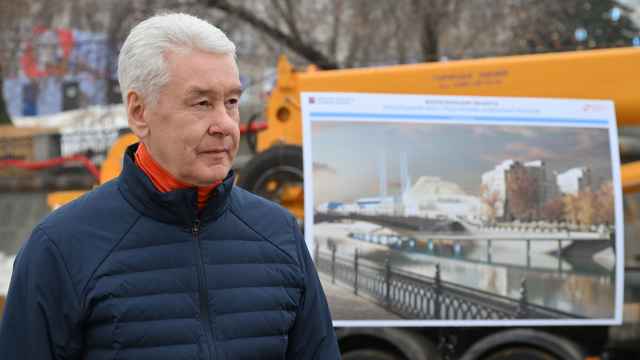Traces of radioactive iodine from Japan's stricken nuclear power plant have been detected in the Primorye region but posed no health threat, officials said Tuesday.
Tests of the air from Saturday to Tuesday found traces of iodine-131, the head of Primorye's meteorological service, Boris Bulai, said on its web site.
"Its concentration is more than 100 times lower than the acceptable level, and thus presents no threat to people's health," he said.
Radiation levels detected in Primorye have ranged from 7 to 16 microroentgens an hour during that period, which is within the normal range, the service said. Authorities say up to 30 microroentgens an hour is considered safe.
Vladivostok, Primorye's capital with 600,000 people, lies across the Sea of Japan, about 800 kilometers northwest of the crippled Fukushima Daiichi plant.
After the March 11 earthquake and tsunami, worried residents in the Far East snatched up iodine pills, to protect the thyroid gland, and set up a string of forum sites to monitor radiation.
But meteorological service spokeswoman Varvara Koridze said wind patterns since the disaster meant that the iodine-131 detected in the region had drifted eastward from the plant and all the way around the world.
"The winds blew west to east, and the air masses moved across the United States and Europe," she said.
Trace amounts of iodine-131, below levels of concern for human health, have turned up in areas including Iceland, Canada and several U.S. states since the 9.0-magnitude earthquake and tsunami severely damaged the plant in Japan.
A Message from The Moscow Times:
Dear readers,
We are facing unprecedented challenges. Russia's Prosecutor General's Office has designated The Moscow Times as an "undesirable" organization, criminalizing our work and putting our staff at risk of prosecution. This follows our earlier unjust labeling as a "foreign agent."
These actions are direct attempts to silence independent journalism in Russia. The authorities claim our work "discredits the decisions of the Russian leadership." We see things differently: we strive to provide accurate, unbiased reporting on Russia.
We, the journalists of The Moscow Times, refuse to be silenced. But to continue our work, we need your help.
Your support, no matter how small, makes a world of difference. If you can, please support us monthly starting from just $2. It's quick to set up, and every contribution makes a significant impact.
By supporting The Moscow Times, you're defending open, independent journalism in the face of repression. Thank you for standing with us.
Remind me later.





